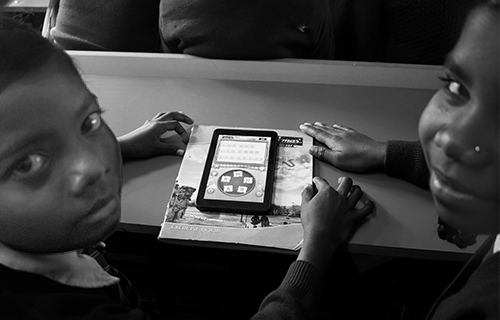When the pandemic started and a nationwide lockdown was imposed everything came to a standstill. Schools were closed and physical classes suspended. Students have been away from schools for the last five months and there is no possibility of it opening anytime soon.
COVID-19 pandemic has deepened the gap between haves and have-nots. Digital Disruption has forced most of the private schools in the country to start online classes. Students enrolled in such schools come from relatively well-off families are not losing much on their course curriculum.
As for the government school children, access to education has been limited. The government has adopted various means to reach out to the students from government schools but still, more than 50% of the students are unable to benefit from it. The reasons for this are varied, right from access to smartphones, Internet data, access to TV or radio to remote locations of their villages. Having said that, it is commendable to note that Government is doing everything in its capacity to reach out to the students and ensuring that the current academic session is not a complete washout.
COVID-19 has given a new dimension to EdTech and the debate on synchronous and asynchronous learning along with physical classroom has again started. It is being believed that the future form of education would have to be an amalgamation of online learning and face to face learning.
The government school students are not left untouched by this new revolution in education, those working closely with government school students need to bring digital literacy and technology to the classroom and provide students with opportunities to become conversant in the use of them. This will ensure that the students when they come out of the school and are at the stage of choosing a career, are future-ready.
Non-Governmental Organizations along with the education department also need to invest in teacher training so that they could comprehend technologies as well as master digital pedagogy.
Big corporates particularly those in the field of manufacturing computers, tablets, etc. should come forward and help the NGOs working in the school by providing them with requisite tools to conduct classes. EdTech companies should also extend a helping hand to organizations involved with government school students by sharing their modules at discount.
In these troubled times, we all need to pool our resources so that we safeguard the future of disadvantaged kids.



.png)
_(2).png)
.png)
_(Banner_(Landscape))_(Blog_Banner).png)
.png)
The Covid-19 pandemic is dramatically restricting the opportunity of Indian students who want to study abroad, governments around the world have focused more on safety and public health with lockdown and travel restrictions. Covid-19 has undoubtedly acted as a significant disruption for the student who graduates this year and would like to study abroad and starting new academic programs. Visit LinkedIn: Gaurav Yadav Visit Instagram: Gaurav Yadav https://www.linkedin.com/in/1gauravyadav/ https://www.instagram.com/1gauravyadav/